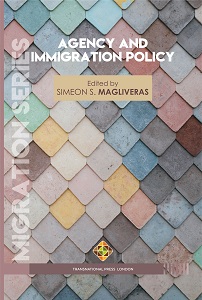Transiting into the Singaporean Identity: Immigration and Naturalisation Policy
Transiting into the Singaporean Identity: Immigration and Naturalisation Policy
Author(s): Mathews Mathew, Debbie Soon
Subject(s): Migration Studies, Politics and Identity, Asylum, Refugees, Migration as Policy-fields
Published by: Transnational Press London
Keywords: Singapore; immigration; naturalisation policy; government; unprecedentedly; national identity; independence; Singaporean; post-colonial societies; Southeast Asian; education system;
Summary/Abstract: Debates in Singapore about immigration and naturalisation policy have escalated substantially since 2008 when the government allowed an unprecedentedly large number of immigrants into the country. While the city-state is essentially a migrant society, brought about through nineteenth century British colonial interests, Singaporeans have gained a heightened sense of national identity in the fifty years since independence. Being “Singaporean” is essentially, as in other post-colonial societies, manufactured through a series of founding myths and shared experiences. Founding myths include the meritocratic nature of the society, very different from its surrounding Southeast Asian nations where patronage, racial superiority and corruption are rife, and the importance of a strong state to ensure that the nation is able to survive against all odds (Rodan, 2004). Shared experiences, such as a gruelling education system, life in high rise and exorbitant public housing, compulsory military service for men and the melange of cultural celebrations and cuisine further define Singaporeans’ identity.
Book: Agency and Immigration Policy
- Page Range: 73-89
- Page Count: 17
- Publication Year: 2020
- Language: English
- Content File-PDF

